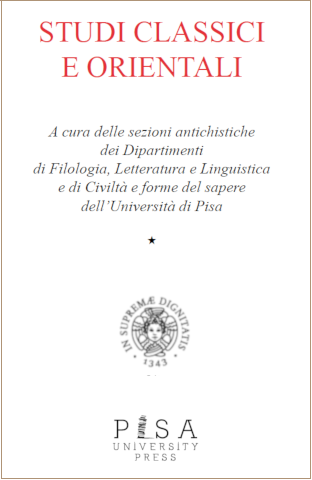Ad concilianda vulgi studia I. La gestione del ricordo di Germanico sotto Caligola
Parole chiave:
Caligula, Germanicus, Memory, Celebration, Self-promotionAbstract
Son to an allegedly poisoned father and an exiled mother, brother to two hostes populi Romani, Caligula, at his accession after the death of Tiberius in March AD 37, ound himself in a tottering situation. However, the historiographical accounts underline the rejoicing of all Roman social strata at the rise to power of Germanicus’ on after the abuses suffered by his family, as everyone expected him to emulate his father’s greatness. Caligula was aware that he needed to celebrate his heroic Julian legacy to support his position, and so he did in the first years of his reign: epigraphical, numismatic, and generally material evidence completes the nsatisfactory historiographical accounts, which omit almost all mention of the princeps’ celebration of Germanicus’ memory. In AD 39, however, when Caligula expressed is own political agenda, tearing through the Augustan ‘republican’ pretences, and later discovered the great conspiracy involving his favourite (Lepidus), one of his most illustrious generals (Gaetulicus), and most crucially his two surviving sisters, he realised that he could no longer rely exclusively on his father’s memory to phold his position as princeps. For this reason he started to look for other forms of self-promotion, such as military glory, dynastic plans, alleged pretensions of odhood, and anti-senatorial acts of government. This saw ultimately a decline, though not a complete disappearance, of Germanicus’ celebration, as Caligula’s father nly became one secondary item of his son’s political agenda


